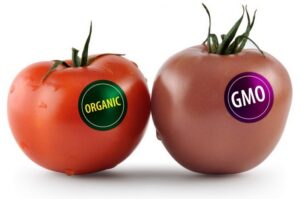
The sales of new trucks weighing over 3.5 tonnes in January-July this year increased by 72.6% compared to the same period in 2020, to 2,746 units, according to AUTO-Consulting.
According to information on its website, 521 trucks were sold in July, which is 30.9% more than in the same month last year.
“Road construction continues to be the market driver. Dump trucks are bought like “hotcakes,” and it was the supply of equipment for road workers in July that changed the balance of power in the market,” analysts say.
Leadership in July 2021, as in the previous year, was retained by Belarusian-based MAZ with a market share of 15% and the sale of 78 vehicles (five more than in July 2020).
German-based MAN, which came in second with a margin of three vehicles, became the leader in the heavy-duty truck segment at the same time.
Scania maintained its third position, adding 30% in sales, to 70 vehicles and taking 13.4% of the market, and in the heavy segment it ranked second.
“In July, these three manufacturers managed to break away from competitors in terms of supplies and each sold more than 70 units of equipment,” the experts state.
The fourth was Ford Trucks with 55 vehicles sold and an increase of 72%, and Volvo ranked fifth in July (compared to the ninth place a year earlier) with the largest growth of 2.7 times, to 38 units.
A year earlier, the third and fourth lines of the July rating were occupied by Renault and Mercedes-Benz (in July this year – the eighth and sixth lines of the rating, respectively).

Ukrainian President Volodymyr Zelensky’s approval rating stands at 29.3%, while 56.1% of Ukrainians disapprove of his activity, according to a nationwide poll conducted by the Kyiv International Institute of Sociology between July 24 and August 1.
The sociologists noted a decline in the president’s approval rating, as 34.1% respondents approved of his activity and 52.7% said the opposite in June 2021.
Meanwhile, 43.2% of Ukrainians support an early presidential election, and 46% do not.
The respondents are more inclined to support early parliamentary elections, with 48.7% in favor and 38.3% against, the pollster said.
The institute interviewed 2,028 respondents older than 18 in 105 populated localities in all regions of Ukraine controlled by Kyiv.

Ukrainian athletes Anastasia Savchuk and Marta Fedyna received a bronze medal in artistic swimming duets at the Olympic Games in Tokyo.
“Anastasia Savchuk and Marta Fedyna ranked third in duets and receive the first artistic swimming award for Ukraine at the Olympic Games. History is happening before our eyes,” the press service of the National Olympic Committee said.

The Cabinet of Ministers has supported the submission to the Verkhovna Rada of a draft law on state regulation of genetic engineering activities and control over the circulation of products containing genetically modified organisms (GMO), this initiative is conducting a comprehensive review of the existing legislation in the field of handling GMO products, and also allows implementing EU regulations in force in the Ukrainian legislation.
The government made the corresponding decision without discussion at a meeting on August 4.
“Imperfect legal regulation of GMO handling makes it impossible to effectively control the circulation of GMO products and creates conditions for the illegal use of unregistered GMO products. Thus, state regulation in the field of GMO handling should be revised, modernized and brought in line with EU legislation,” an explanatory note to the document reads.
This bill provides for the delineation of powers of the authorities to eliminate duplication of functions in the field of GMO circulation, improvement of the system for assessing the risks of the impact of GMOs on human health and the environment, the introduction of European mechanisms for state registration and labeling of products with GMOs, strengthening state control in the sphere of handling GMOs.
The bill introduces a new type of permits – “permits for the import of unregistered GMOs for carrying out genetic engineering activities in a closed system” with a gradation of the levels of risks they create from 1 to 4.
It is assumed that this bill will regulate the creation, labeling and use of GMOs and genetically modified products, control of compliance with legislation in this industry. In addition, the document prohibits the circulation of food products containing GMOs (or produced with their use) prior to the state registration of the corresponding source of origin of GMOs.

Ukraine International Airlines (UIA) in January-June 2021 received UAH 21.7 million in net profit against UAH 2.9 billion in losses for the same period in 2020, the company’s press service said.
According to its data, EBITDA was fixed at UAH 1.1 billion.
“Achieving positive financial dynamics became possible thanks to the balanced policy of the UIA management to optimize costs and adapt the business to long-term restrictions on air travel due to the impact of the COVID-19 pandemic. In particular, an anti-crisis program was implemented to restructure costs, optimize staffing and minimize airline costs. This made it possible to cut UIA’s mandatory monthly operating expenses by almost three times,” the company said.
In addition, UIA added that in the context of limited flights after the spring lockdown of 2020, the company switched to flexible and short-term planning of the route network, taking into account the frequent situational changes in the rules of entry by foreign countries during 2020-2021.
As reported, UIA in 2020 posted a loss of UAH 4.5 billion.